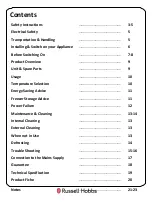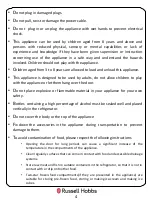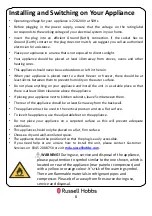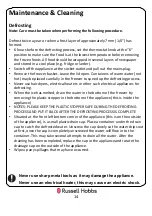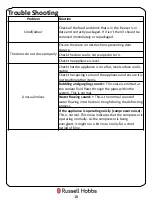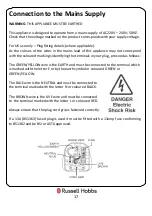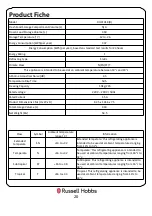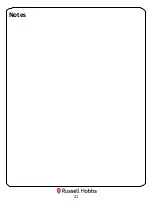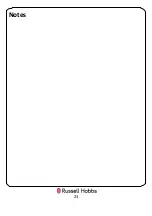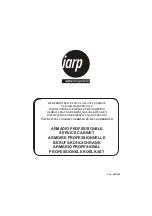
11
Energy Saving Advice
•
Do not install the appliance close to sources of heat, such as a cooker,
dishwasher or radiator.
•
Locate the appliance in a cool well-ventilated room and make sure that the air
vents are clear.
•
Try to avoid keeping the doors open for a long time, warm air will enter the
cabinet and may cause a build-up of ice as well as affecting the energy
consumption. Ensure there are no obstructions preventing the doors from
closing properly.
•
Ensure that the door seals are clean and there are no tears or splits.
•
Do not overload the appliance: the cooling air that circulates to keep the
appliance cold gets blocked and pockets of warm air form.
•
Do not put hot food into the fridge or freezer
–
let it cool down first.
Freezer Storage Advice
•
Store fresh food in airtight boxes or wrap in bags or foil which is suitable for
freezing.
•
Do not allow frozen food into direct contact with food to be frozen.
•
Pre-frozen food must be placed in the freezer as quickly as possible after
purchasing.
•
To prevent frost damage to fresh vegetables or fruits they must be processed
appropriately before being placed into the freezer compartment.
•
You must always follow the storage guidelines printed on all food packaging.
However, below is some suggested maximum storage times at -18°C (4 star
freezer rating) for a variety of foods:
•
Fresh meat & poultry
–
up to 12 months
•
Cooked meat
–
up to 2 months
•
Fresh fish
–
up to 6 months
•
Fruit & vegetables
–
up to 12 months
•
Bread & cakes
–
up to 6 months


